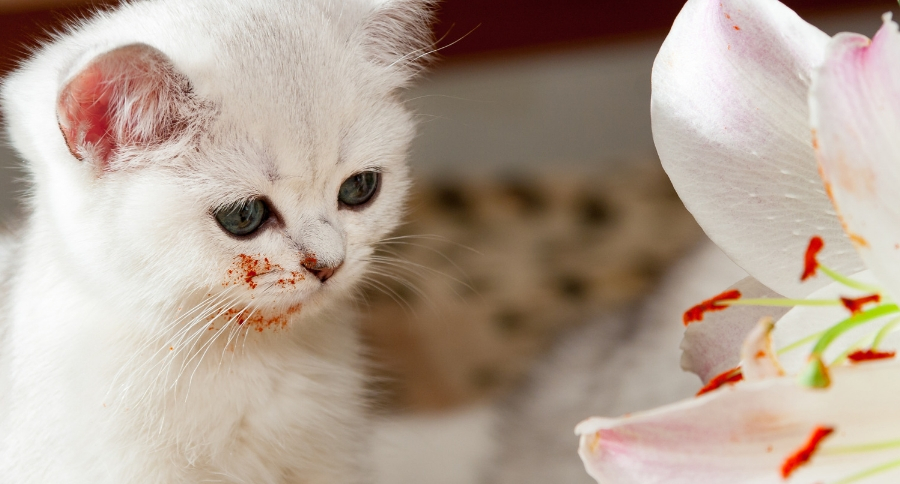Lilies are one of the most dangerous flowers for our feline friends. What's truly scary is that it only takes only a nibble or lick to send a cat into acute kidney failure. These flowering ornamental plants are used in holiday celebrations, weddings, and funerals, and in various floral arrangements for Easter.
If you are lucky enough to share your home with a cat, don't ever have lilies on the table or anywhere (which means just don't have them around) your cat can reach them!
Sources for Poisoning
https://www.instagram.com/p/Bfuv0ImFSYX/
Lilies of genera Lilium and Hemerocallis (daylilies) have been shown to cause nephrotoxicity in cats,
Editor's Note: This is one of the most common kidney problems and occurs when your cat's body is exposed to a drug or toxin that causes damage to your kidneys.
"Confusion arises because so many different plants are called lilies. Members of the genus Convallaria (lily of the valley), while sparing on the kidneys, elicit toxic effects because they possess potent cardiac glycosides similar to digitalis. Even more confusing as to which lilies are toxic is the fact that many hybrids exist."
Mechanism of Action
https://www.instagram.com/p/Bv9p08gAtWp/
It just takes a nibble of a leaf or a stem to cause problems. Cats are extremely sensitive to the toxic effects!
The Pet Poison Hotline tells us,
"The exact toxin has not been identified, but is known to be water soluble. All parts of the plant - the leaf, pollen, stem, flower are considered poisonous. Kidney damage (specifically, renal tubular necrosis) occurs within 24-72 hours of ingestion."
Common Signs of Poisoning
https://www.instagram.com/p/BgfshcFhCGS/
A single flower has been known to cause death. Even the pollen is deadly.
In cats, clinical signs include salivation, vomiting, anorexia, and depression.
Successful Treatment If Timely
https://www.instagram.com/p/Bv7CSVCFt-m/
The symptoms are so severe that many experts recommend rushing your cat to a vet emergency hospital or specialty clinic.
Successful treatment includes initiation of fluid diuresis before the onset of anuric renal failure. If acute kidney failure has occurred the treatment involves IV fluids, injectable medications, nutritional support, and close monitoring.
Lily toxicity is no laughing matter and if you even suspect part of a lily was ingested you should immediately rush your cat to the emergency vet hospital.
The ASPCA has a list of poisonous plants that all pet owners should be familiar with if they live with a cat or dog.
The types of lilies that should be on your radar include Asiatic, Easter, Japanese Show, rubrum, stargazer, red, tiger, Western, and wood lilies (Lilium species) and daylilies (Hemerocallis species).
Do you know any cats that nibbled on plants or flowers and needed medical attention? Please leave a comment below.
This post was originally published on April 8, 2019.




